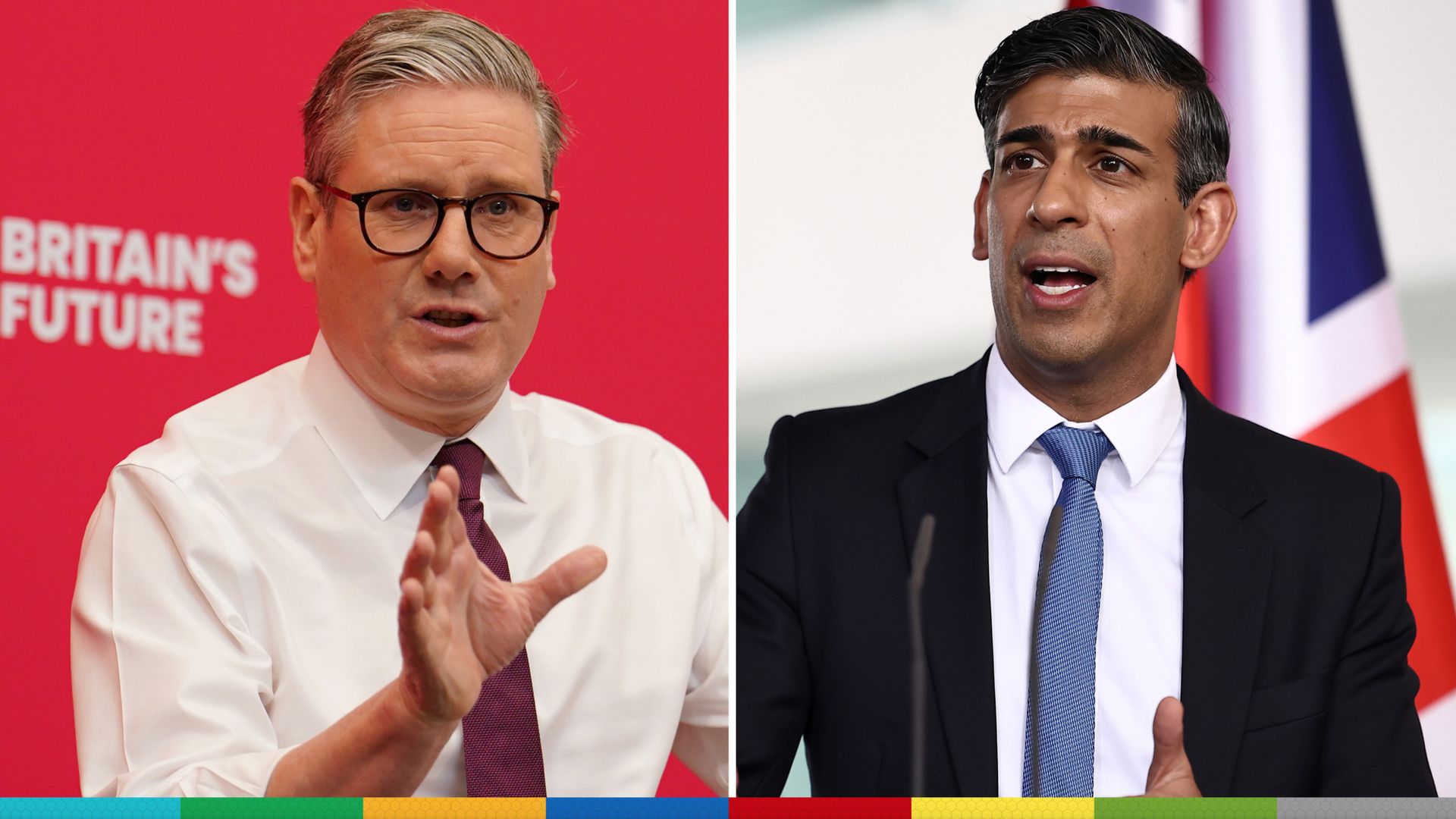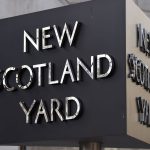We went into this set of local and mayoral elections with two big questions: Is Labour on course for a majority and how bad is it going to be for Rishi Sunak?
On the Sunak question, it’s a very clear-cut story.
The Tories are having as bad a night as their worst nightmare.
There is a 19-point drop in the Conservative vote compared with the 2019 general election – one of its worst performances ever.
But it’s not an all-out win for Labour, either.
As it stands on these results, the party is not on course for an outright majority at the general election, according to our election expert Professor Michael Thrasher.
The projected National Equivalent Vote (NEV) share – the model we use to translate local council elections into a nationwide vote share – puts Labour on 35%, short of the 40%-plus territory some see as needed to catapult Sir Keir Starmer into No 10 and way off what Blair was hitting in the 1995 and 1996 local elections ahead of his massive landslide.
Sky News projection: Labour on course to be largest party – but short of overall majority
Starmer says time for Sunak to face nation as Tories hammered in by-election and council races
Local election results: Not even Blair’s Labour delivered this shocking blow – but real Reform threat means it’s not all going Keir Starmer’s way
If you want to benchmark against how it compares to Blair’s performance in the run-up to 1997, in the 1995 local elections, Labour achieved an NEV of 47%, while in 1996 the party hit a NEV of 43%.
So what might that mean for the maths in the House of Commons?
The Tory majority is wiped out – with Sunak projected to win a 25% vote share – and Labour becomes the largest party in parliament, but 32 seats short of an outright majority.
That would give them a gain of 93 seats to 294, with the Tories dropping 130 seats to finish with 242.
The Lib Dems would add 30 seats to have 38 MPs, with others up seven on 66.
That raises questions for Labour.
While the country is clear in these results that the government is the problem, they seem less sold on whether Keir Starmer is the answer.
👉 Listen above then tap here to follow Electoral Dysfunction wherever you get your podcasts 👈
Of the 260 seats lost by the Conservatives in the council elections as of 5pm on Friday, Labour has picked up less than half as the vote goes to independent and smaller parties.
Labour will argue two things: that they are winning in key battlegrounds across the country they need to win a general election, while voters are likely to turn out in bigger numbers and vote for the main parties when it comes to selecting MPs rather than councillors.
Labour insiders tell me it’s “wrong” to say they are not on course to win a general election.
“We are very happy with the efficiency of the vote from every corner of the country, from Hartlepool down to Thurrock, from Avon and Somerset up to Redditch, millions of people have sent out a message so loud and clear that even the prime minister in his private jet must have heard it,” said one senior figure.
“Labour’s on course to win a majority. We are very happy with where we are. Others and independents won’t get 24% in the general election.
“The voter distribution is where we need to be. In places like Tees Valley we have a huge swing.
“Where do you think all those smaller and independents are going at a general election where there is only a choice of two parties?
“A nine percent lead is more than enough to win a majority and we are winning the seats we need to win a majority.”
And there are some signs of direct transfer of seats from Tory to Labour in key constituencies.
Rushmore, a council Blair never won and has been Conservative for 51 years has switched.
Redditch, in West Midlands, was a straight swap to Labour.
In Swindon, another general election bellwether, Labour extended their lead.
“It’s not just the Tories losing, it’s us winning Rushmore, Redditch. Whoever wins Redditch wins the country, Thurrock, Hartlepool,” the senior figure added.
“So we are winning in every type of seat, the Red Wall and the Blue Wall.
“Take Rushmore. The position of a changed Labour Party is showing. Very satisfying that in a general election year, when the Tories are trying to use national security as a dividing line, they lose the home of the British Army.”
For the Tories, it’s a horror show – pure and simple. In Welling and Hatfield, Portsmouth and Peterborough, they are hitting their lowest seats ever, passing records set in 1996 when Blair was Labour leader and on the cusp of a landslide.
But for all the good news for Labour, this is not a slum dunk by any means.
Because, in a nutshell, for all the seats the Tories are haemorrhaging, Labour is not by any means always their main beneficiary, as independents and smaller parties prosper from Conservative decline.
So take the nightmare of Peterborough for the Tories – Labour did well, but it was independents that picked up more seats.
Harlow is the same, with the party unable to unseat the Tories in a council they lost in 2021. The Conservatives lost 11 seats, but seven of those went independent rather than to Labour.
Labour is also struggling in some areas as tensions over the Israel-Hamas war are playing out at the ballot box.
The solid Labour vote in Blackburn with Darwen, Labour lost several seats to independents in Muslim majority wards, with the Labour vote share on the council down more than 20 points.
In the Muslim area of Elswick in Newcastle, the Labour vote share plummeted and this time the Greens gained.
The Greens’ co-leader Carla Denyer told Sky News the win was predominantly because of Gaza.
The Greens are picking up seats from the Conservatives too.
The Lib Dems so far are underwhelming after a soaring performance last year, they could pick up when results from the South West and South East start coming in.
There are still plenty of results to go, but what is clear from the counts so far is that Sunak’s Tories are into John Major territory in these last big ballot box tests before the general election.
But what is less clear-cut is whether Sir Keir Starmer is riding the sort of New Labour wave that brought Blair crashing into Downing Street with a landslide in 1997.






















